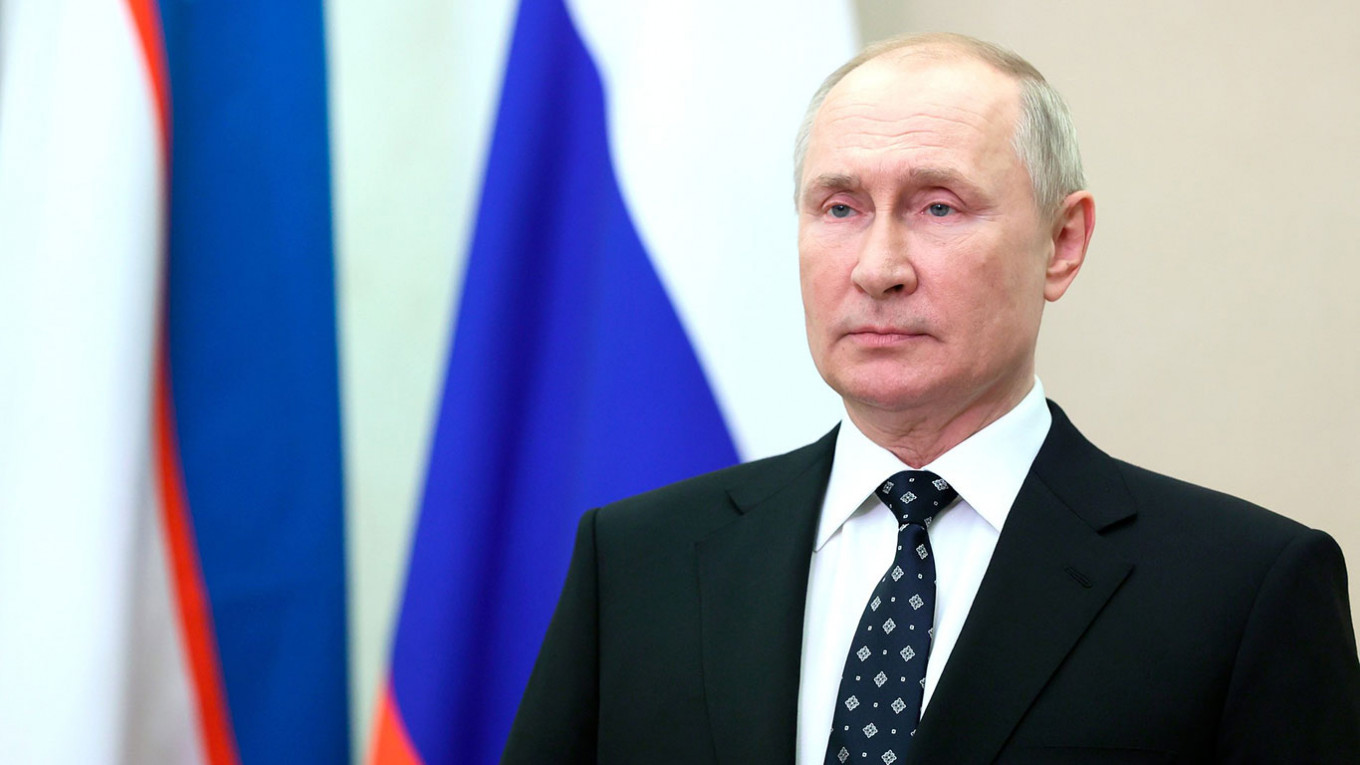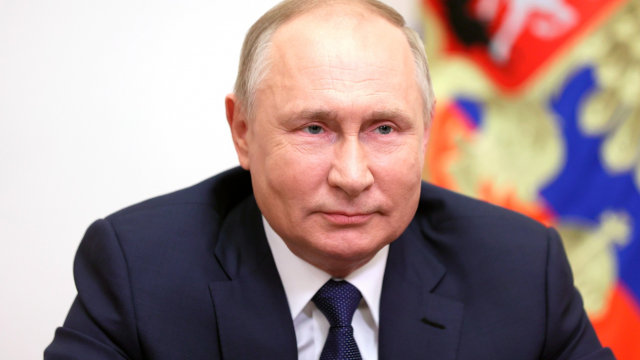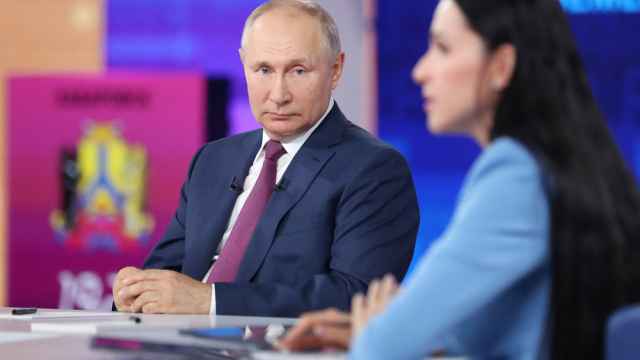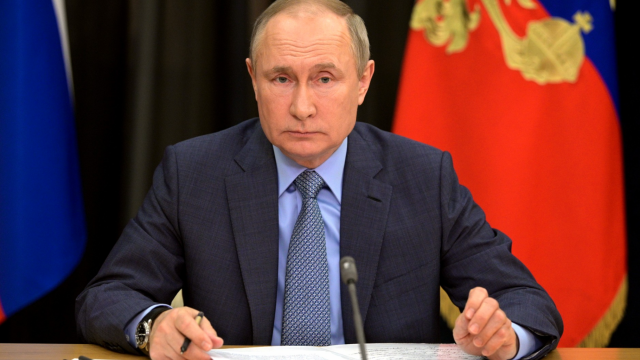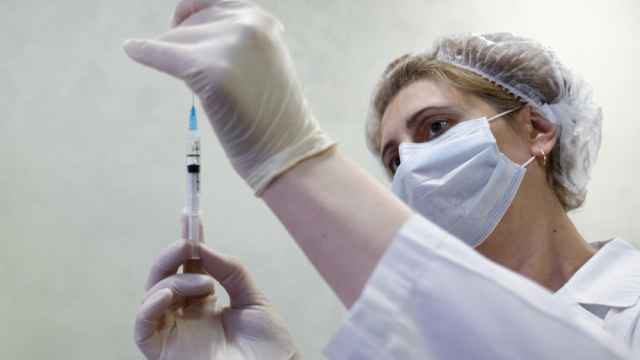Russian President Vladimir Putin said he has received an experimental nasal coronavirus vaccine days after receiving a booster shot as authorities continue to struggle to convince people to get vaccinated.
Putin said on Sunday he had had a third Covid-19 vaccine dose, noting that the injection of the one-dose Sputnik Light booster was painless.
The president also volunteered to take part in trials of Russia’s nasal Covid vaccine, he revealed Wednesday.
“I sprayed one [nostril] and the other,” Putin said in a televised meeting with top government officials in charge of Russia’s coronavirus response.
“I sat there for 15 minutes and it was all over. I felt nothing, simply nothing,” the president said after receiving what he described as a “powder” nasal spray.
Kremlin spokesman Dmitry Peskov clarified later Wednesday that the nasal spray is a liquid.
“Today, after these two procedures, I already played sports in the morning.”
Putin repeated his pleas to Russians both to get vaccinated and re-vaccinated to combat the latest and deadliest wave of the pandemic yet, with more than 1,000 fatalities per day registered in recent weeks.
He added that he was still opposed to mandatory vaccination.
Russia has rolled out several domestically developed vaccines, including the internationally touted Sputnik V, but the campaign to immunize the country has faced several setbacks.
Only 37% of Russians are fully vaccinated, according to monitors, while authorities say Russia’s herd immunity has surpassed 50%.
Lawmakers are now racing to mandate digital Covid passes for access to public transport, restaurants and non-essential shops to combat the pandemic's fourth wave and boost vaccinations.
Russia is among the worst-hit countries by the coronavirus pandemic with a total of more than 9.4 million infections and more than 266,000 officially registered deaths.
The Moscow Times' analysis places Russia’s total excess death figures since the start of the pandemic at at least 723,000.
A Message from The Moscow Times:
Dear readers,
We are facing unprecedented challenges. Russia's Prosecutor General's Office has designated The Moscow Times as an "undesirable" organization, criminalizing our work and putting our staff at risk of prosecution. This follows our earlier unjust labeling as a "foreign agent."
These actions are direct attempts to silence independent journalism in Russia. The authorities claim our work "discredits the decisions of the Russian leadership." We see things differently: we strive to provide accurate, unbiased reporting on Russia.
We, the journalists of The Moscow Times, refuse to be silenced. But to continue our work, we need your help.
Your support, no matter how small, makes a world of difference. If you can, please support us monthly starting from just $2. It's quick to set up, and every contribution makes a significant impact.
By supporting The Moscow Times, you're defending open, independent journalism in the face of repression. Thank you for standing with us.
Remind me later.


